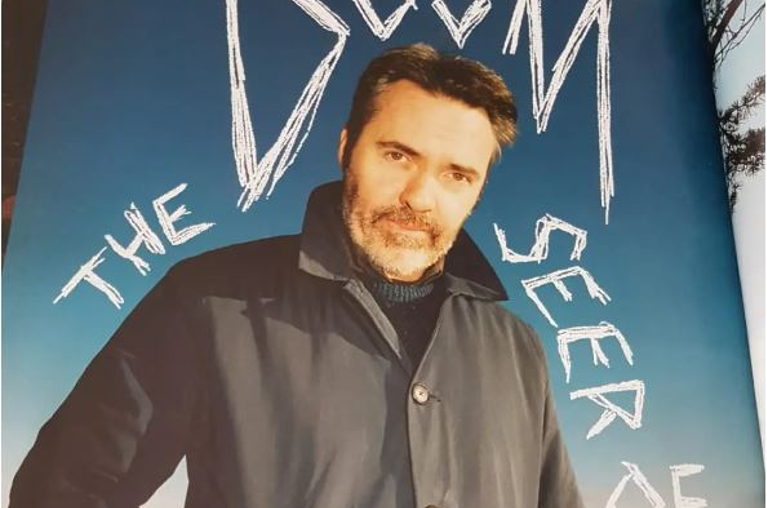I was wrong to conclude collapse is inevitable… because when I was concluding that, it had already begun.
When I concluded that societal collapse is inevitable, nearly 5 years ago, it may have been one of the reasons my Deep Adaptation paper attracted unusual attention. Many people agreed and thanked me for expressing that conclusion publicly. They said it helped validate what they already felt, and so enabled their emotional processing and to change their lives accordingly. Other people chose a variety of ways to disagree. Some claimed I was not being scientific to claim an inevitable outcome, and instead language like “near certain” or “very likely” would be more appropriate. Others preferred to regard societal collapse as a possibility, as they wanted to hope for a managed transition to a new form of society. Unfortunately, other people misrepresented what I wrote. To recap: in the paper I did not claim that we faced inevitable near-term human extinction and did not claim that the inevitable collapse would happen by 2028. Instead, in that paper in 2018 I wrote:
“Recent research suggests that human societies will experience disruptions to their basic functioning within less than ten years due to climate stress. Such disruptions include increased levels of malnutrition, starvation, disease, civil conflict and war – and will not avoid affluent nations.”
In 2023 many experts and UN officials are saying similar.
I summarised my position thus:
“Currently, I have chosen to interpret the information as indicating inevitable collapse, probable catastrophe and possible extinction.”
I then warned against the trap of concluding inevitable human extinction:
“I have witnessed how people who doubt extinction is either inevitable or coming soon are disparaged by some participants for being weak and deluded. This could reflect how some of us may find it easier to believe in a certain than uncertain story, especially when the uncertain future would be so different to today that it is difficult to comprehend.”
Unfortunately, the misrepresentations of the original Deep Adaptation paper within mainstream publications and by participants in environmental professions and movements has distorted understanding, even for people who welcomed the analysis and concept in the first instance. Such misrepresentation has been helpful for those people who wanted to side-line a discussion of collapse or, perhaps, to own the agenda for themselves. It is an open question how much crucial time and public money has been lost due to people pursuing such tactics.
The valid criticisms were that I had not sufficiently defined either collapse or what would be collapsing. I was new to the topic of societal collapse at that time. So when in early 2021 I embarked on a couple of years of research on the topic, with an interdisciplinary team, I was open to finding analysis that would nuance my conclusions. The result of that process is contained in my new book, Breaking Together. What I discovered is that the breakdown of societies had already begun when I was researching the Deep Adaptation paper in 2017/18. Collapse is a process, not an event, and because the changes already observed appear to be irreversible, collapse is a reasonable term to describe that process.
In the book I go into great depth on the evidence base for this perspective. I also explain why it is not one that we hear so often from experts. Chapter 1 is available for free as an audio file on soundcloud. In it I describe some of the socio-economic evidence and theory for the view that the collapse of industrial consumer societies has already begun. Chapter 4 on global food system breakdown is also available as an Occasional Paper from my University. Commenting on it, Dr Katja Hujo from the UN Research Institute for Social Development (UNRISD) notes:
“Jem Bendell’s paper (and forthcoming book) is a wake-up call that our global food systems are approaching global breakdown due to a number of interlinked hard trends, from biophysical limits of food production and climate change to growing demand and the destructive implications of our profit-oriented capitalist system. The application of interdisciplinary integrative analysis and the emphasis on economic, social, technological and ecological dimensions of the challenge ahead helps to grapple with the complexity of the issue and to avoid simplistic solutions. It is an analysis that motivates the reader to act at multiple fronts and critically engage with a topic that has a huge bearing on the future of humanity.”
I spoke with GQ Magazine about the process of writing the book (one image from their article is shown above). The research process was not fun for any of us involved, due to the fact we were analysing so many interconnecting problems and discovering the limitations of so many proposed solutions. However, the second half of the book offers a positive way of making sense of this situation and celebrates the people who are responding creatively and courageously. I am hoping it will help more people to move into a ‘post-doom’ mindset and experiment with different ways of living as a result.
I will launch the paperback of Breaking Together in the UK in Glastonbury Town Hall on June 18th. Then on July 10th 2023, the book will become free as an epub download on the website of the Schumacher Institute. That is the 50th anniversary of the publication of Small is Beautiful by EF Schumacher. I now regard that classic text as offering a coherent analysis that the environmental movement and profession became better at ignoring as it became more compromised and self-serving. That day I will participate in an online Q&A with participants from the Deep Adaptation Leadership group on LinkedIn. You could sign up here. To be updated on my presentations in other locations over the next 12 months, subscribe to my blog.
You can read more about the book, including a range of endorsements, from people including Charles Eisenstein, Clare Farrell and Satish Kumar, on my blog. To obtain the book on Kindle on May 9th 2023, you can pre-order here.
Teaser photo credit: Author supplied





